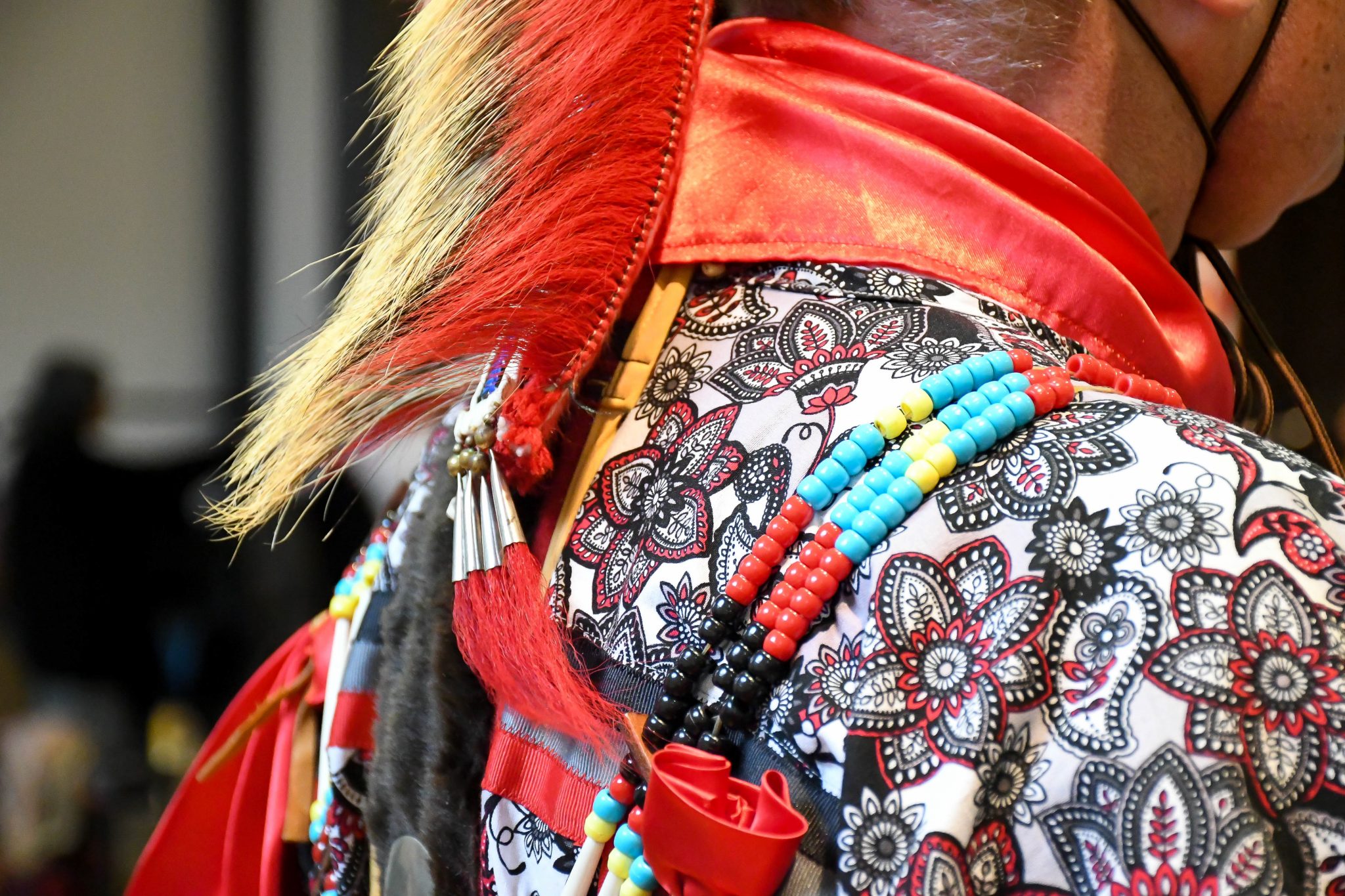The University of Maryland hired two new Native and Indigenous employees who strive to create new research and community experiences for students at this university.
Shelbi Nahwilet Meissner aims to do this by creating the Indigenous Futures Lab. Kyrsha Balderas hopes to increase engagement in Indigenous culture through powwows and cultural spaces as the full-time Native and Indigenous Student Involvement coordinator at the university’s Multicultural Involvement and Community Advocacy office.
Meissner — who is of both Luiseño and Cupeño descent — was hired this fall as an assistant professor for this university’s women, gender and sexuality studies department.
She is the founding director of the Indigenous Futures Lab, a hub at this university that blends Indigenous research, service and event opportunities for students. The lab, located in Susquehanna Hall, opened on Oct. 27.
“We take Indigenous philosophy of science, Indigenous traditional knowledges and we infuse that into all different sorts of projects,” Meissner said.
The lab’s upcoming project, informally named “Piscataway Pathways,” aims to locate different archives of local Indigenous communities’ cultural and language resources, Meissner said.
The lab will also have several recurring events, including one that will facilitate conversations about grief and Indigenous death care practices, Meissner said. Other events include hands-on bead crafting and basket weaving activities that teach community members about traditional Indigenous artwork.
About 0.1 percent of the university’s fall undergraduate class identifies as American Indian or Alaska Native, according to the university’s institutional research, planning and assessment office.
[UMD community honors loved ones with Day of the Dead altar]
Meissner said that as a land-grant institution, the university has a responsibility to have a Native student population that reflects Indigenous people’s population.
The Indigenous Futures Lab will help accomplish that by attracting researchers and scholars who will in turn support Native students’ recruitment and retention through a trickle-down effect, Meissner said.
Senior elementary and middle school special education major Paulina Martinez said that the Indigenous Futures Lab stands out because it is not just research-based, but also community-oriented.
“I’ve never heard of a research lab having such a fun workshop where you get to read some Indigenous literature and also chat and bead or weave,” said Martinez, this university’s Native and Indigenous Student Union’s president. “I love that it’s very community-oriented and I think it’s very empowering.”
Martinez added that the lab could be a safe space for Indigenous students or students interested in Indigenous activism.
Bayley Marquez, an American studies professor in the women, gender and sexuality studies department, will teach a course about science fiction, colonialism and Indigenous futures next semester. Marquez said she is excited to collaborate with the lab and bring her class there.
Marquez and Meissner, who are among some of the only known faculty members at this university who identify as Native American, are spearheading activism around Indigenous issues, Meissner said.
Balderas — a member of the Meskwaki Nation — said coming to the east coast has opened her eyes to the opportunities and support around diversity, equity and inclusion.
[‘Every Child Matters’: UMD native, indigenous student group decries residential schools]
“As soon as I got here, I was almost overwhelmed with the amount of support coming from every direction,” she said. “Everyone is super excited about me being hired and to really dive deep into what Native and Indigenous student involvement could look like at the University of Maryland.”
Balderas said she looks forward to the upcoming cultural center for Native and Indigenous community members in Cole Field House, and to growing future powwows’ attendance. She also emphasized the importance of understanding land acknowledgements at the university.
Martinez said Balderas has already dedicated her time to support the university’s Native American and Indigenous Student Union.
“I couldn’t ask for better. She is so kind and also I think she cares about NAISU and our members, the board members and everybody on a personal level,” Martinez said. “She’s told me that she wants to get involved in anything related to Indigenous peoples and higher education.”
MICA is hosting a series of events for Native and Indigenous Heritage Month in November. This year’s theme is “Learn My Story.”
For Balderas, that means a call to action.
“I want people to be like, ‘Okay, this is my time to learn. This is my time to educate myself and to recognize that native people aren’t a monolith.’” Balderas said. “Go learn something different. Learn about histories, learn about how people do things that are different than you.”



